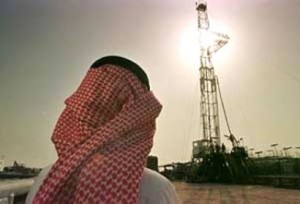 The United Arab Emirates and Saudi Arabia reiterated their pledges to maintain the same production of crude, blaming the producers who are non-OPEC for the oil glut that has driven the price down to its lowest of nearly 5 years.
The United Arab Emirates and Saudi Arabia reiterated their pledges to maintain the same production of crude, blaming the producers who are non-OPEC for the oil glut that has driven the price down to its lowest of nearly 5 years.
Suppliers that are non-members of the Organization of Petroleum Exporting Countries need to cut the irresponsible output, said Suhail Al Mazrouei the Energy Minister from the UAE yesterday in Abu Dhabi.
Even if the producers who are non-OPEC were to cutback, OPEC likely would not do the same, said Ali Al-Naimi the oil minister in Saudi Arabia.
Oil dropped close to 20% since the announcement by OPEC that it would maintain its target for production, seeking to defend its market share and not prices.
The highest crude output in the U.S. in the past three decades has contributed to the glut that Qatar has estimated to be 2 million barrels daily.
Saudi Arabia’s Naimi said it is confident that prices would rebound as the economy gets stronger and the producers that are inefficient trim their output.
The recent decision by OPEC to leave its production targets in place now has placed greater pressure on output from producers that are non-OPEC to rebalance a market that is oversupplied, said industry analysts.
OPEC in each of the last six months has produced over 30 million barrels each day. Non-OPEC producers will increase in 2015 by 2% to 3% to approximately 58 million barrels each day after an increase this year of 3.5%.
Brent was up 0.5% on Monday to $61.71 per barrel in London. It has increased by 3.6% since December 19.
Crude fell this year to a bear market as the extraction of oil soared at the North Dakota and Texas shale formations, as companies split rock suing liquid under high pressure, process referred to as fracking.
The increase in oil demand was less than had been expected at only 700,000 barrels per day and not the projected 1.2 million per day, said al-Naimi.
